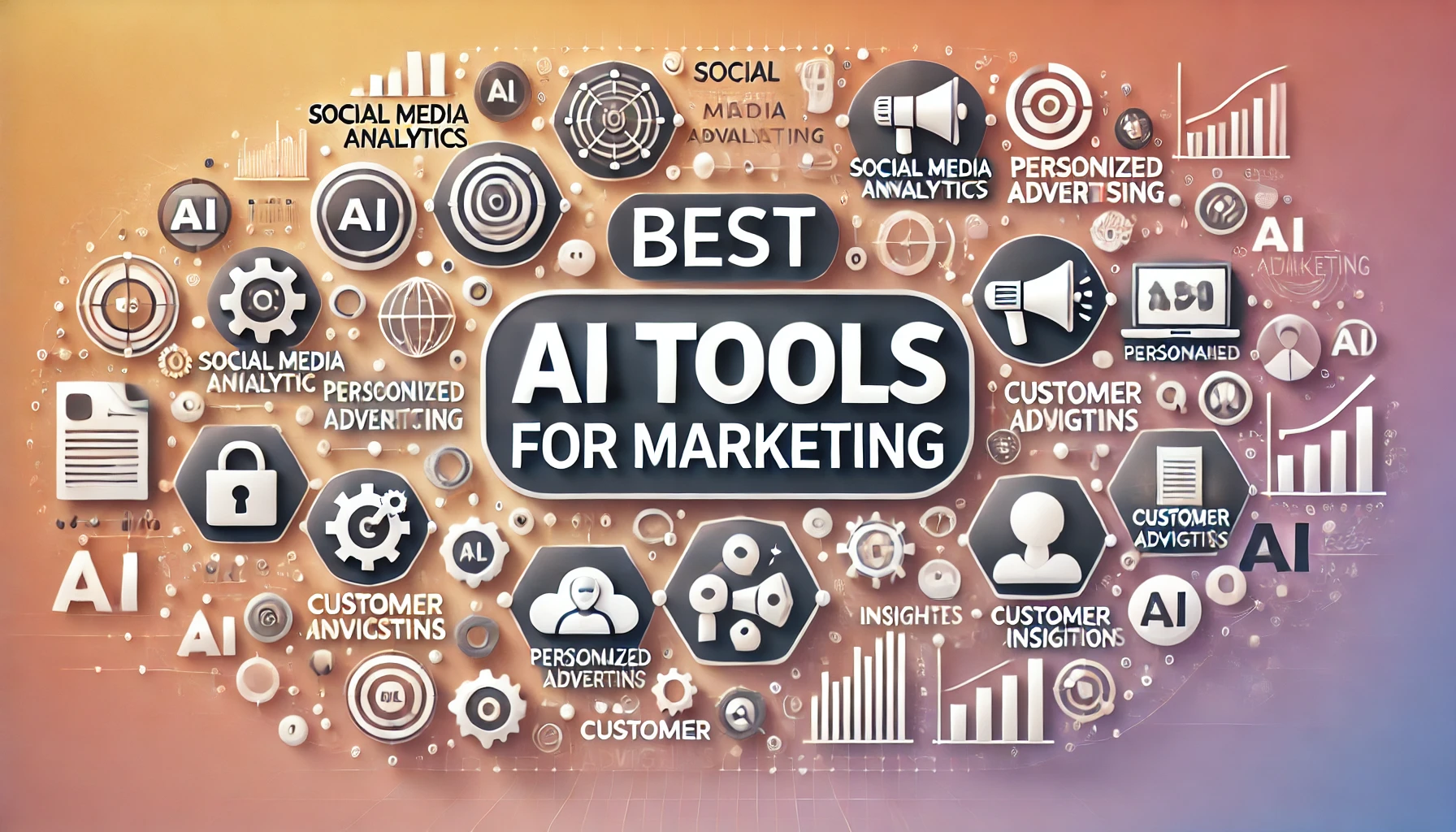In recent years, artificial intelligence (AI) has transformed the marketing landscape, reshaping the way businesses interact with customers, make decisions, and drive revenue growth. AI in marketing involves the use of machine learning algorithms, predictive analytics, natural language processing, and data mining to analyze consumer behavior, automate tasks, and personalize customer experiences. From email marketing to social media management and beyond, AI is now integral to almost every aspect of modern marketing.
Historically, marketers relied on intuition, trial and error, and manual analysis to understand and reach their audiences. However, as digital interactions increased and data became abundant, it quickly became challenging to process this information manually. Enter AI: capable of analyzing massive datasets in real time, identifying patterns, and providing actionable insights. Today, AI in marketing isn’t just a trend—it’s a necessity for brands that want to stay competitive and relevant.
Why AI Matters in Marketing: Personalized Experiences, Insights, and Productivity
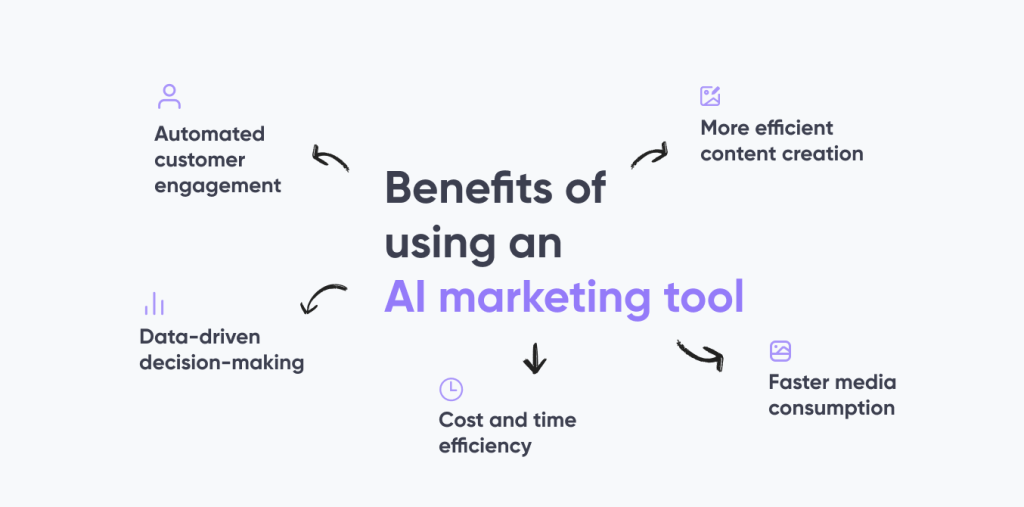
One of AI’s standout capabilities is enabling personalization at scale. Through AI algorithms, marketers can tailor their messaging to individual preferences, behaviors, and needs—turning one-size-fits-all marketing into a personalized experience. This personalization boosts customer engagement and loyalty because it allows brands to connect with consumers on a more intimate, individualized level.
AI also enhances insights by moving beyond basic data points to reveal complex relationships in customer behavior. These insights allow marketers to predict customer needs, identify emerging trends, and respond with agility. For example, predictive analytics, a powerful AI capability, helps marketers anticipate future behavior, enabling preemptive action rather than reactive measures. Such data-driven insights are invaluable for refining marketing strategies and allocating resources effectively.
AI is not just about making decisions—it’s also about streamlining workflows. Through automation, AI allows marketers to reduce time spent on repetitive tasks like social media scheduling, email segmentation, or ad placement, freeing up valuable time for strategic planning. This improved productivity translates into faster campaign rollouts and better resource allocation.
Key Benefits of Using AI Tools in Marketing
- Time-Saving: Automating processes such as content scheduling, data analysis, and customer segmentation drastically cuts down on manual work, allowing marketing teams to focus on creativity and strategy.
- Data-Driven Decisions: With AI, marketers can rely on data-backed insights rather than guesswork, leading to more accurate targeting, better budgeting, and ultimately higher campaign ROI.
- Enhanced Customer Engagement: AI tools enable highly personalized communication, offering customers content that resonates with their interests, preferences, and timing. This leads to more meaningful interactions and stronger customer relationships.
- Revenue Growth: By enhancing precision and efficiency, AI tools contribute directly to revenue by improving ad performance, reducing customer churn, and boosting conversion rates.
What are the best AI tools for marketing?
1. AI-Powered Customer Insights Tools
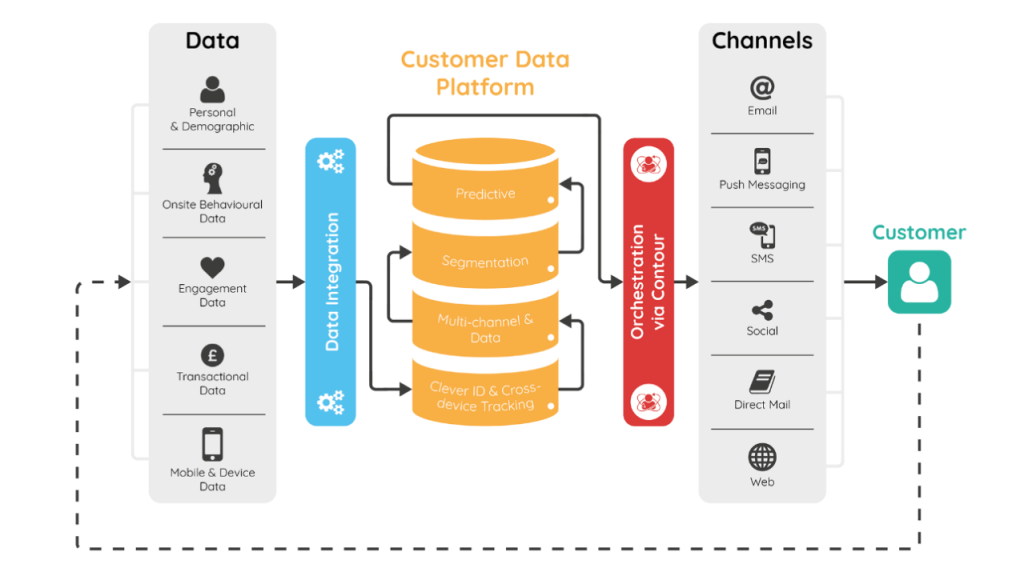
Discuss AI tools that provide valuable customer insights, behavior predictions, and segmentation capabilities to personalize and target campaigns effectively.
- Google Analytics 4: Advanced data-driven insights into customer behavior, with machine learning-powered predictive metrics.
- HubSpot: Offers AI-driven tools for customer segmentation, lead scoring, and campaign optimization.
- Qualtrics XM: Provides in-depth customer sentiment analysis with AI-powered insights.
Benefits: Increased campaign personalization, better understanding of audience needs, predictive behavior insights
2. AI for Content Creation and Optimization

Highlight AI tools that assist in content creation, from blogs to social media posts, helping marketers create quality content faster.
- ChatGPT and Jasper.ai: AI content generators for blog writing, social media posts, ad copy, and more.
- Grammarly: AI for proofreading, editing, and optimizing text for clarity and tone.
- Surfer SEO: AI tool that combines SEO and content optimization, helping marketers align their content with SEO best practices.
Benefits: Time-saving, optimized content for search engines, enhanced content quality and readability
3. AI-Powered Chatbots for Customer Support and Engagement

Explore how chatbots help in customer support, lead nurturing, and engagement through real-time responses.
- Zendesk: AI chatbot that integrates with customer support systems, providing real-time responses.
- Intercom: Advanced chatbot with customizable responses and AI to handle customer queries and route to agents when necessary.
- Drift: AI-driven chatbot for sales and marketing, engaging leads and nurturing prospects on the website.
Benefits: 24/7 support, improved lead conversion, enhanced customer experience
4. AI Tools for Predictive Analytics and Sales Forecasting
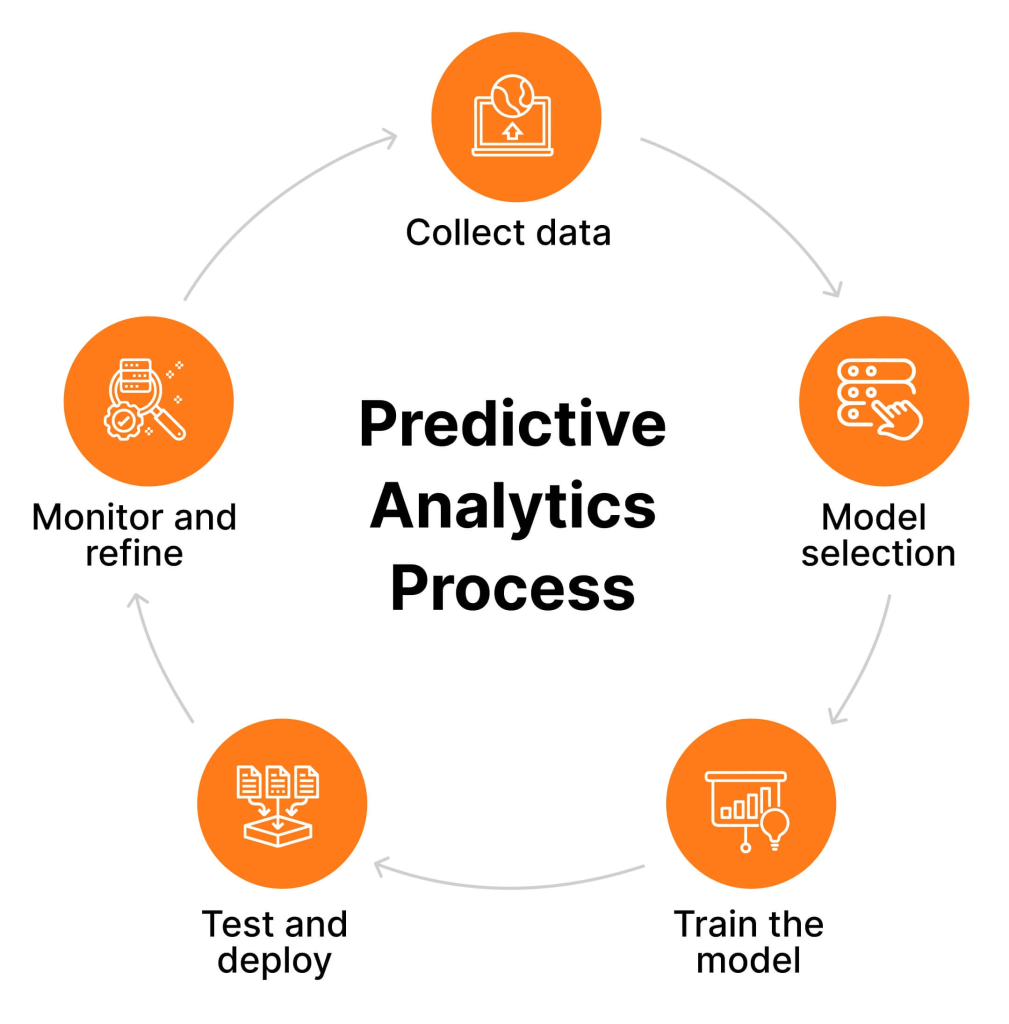
Focus on AI tools that predict sales trends, customer behavior, and purchasing patterns to help marketers make data-driven decisions.
- Salesforce Einstein: AI-powered predictive analytics for forecasting sales and customer behaviors.
- Pecan AI: Forecasting and predictive analytics for customer lifetime value, churn prediction, and more.
- IBM Watson: AI platform for predictive analytics with customer and operational insights.
Benefits: Data-driven strategy, better sales forecasting, improved customer retention
5. AI for Social Media Marketing and Monitoring
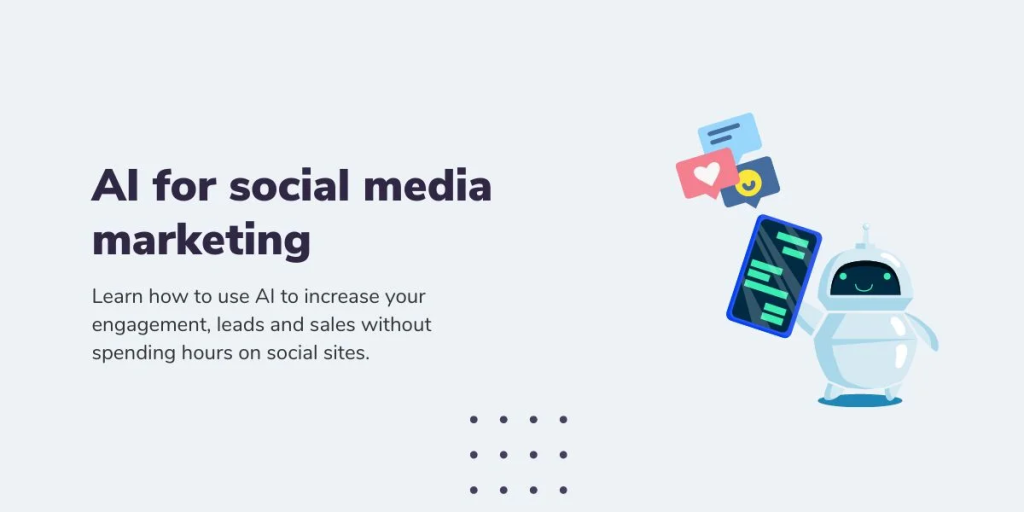
Discuss tools that help with social media listening, scheduling, content creation, and performance analysis.
- Sprout Social: Social media management with AI insights for engagement and social listening.
- Hootsuite Insights: AI-powered tool for tracking social media sentiment, trends, and performance.
- Canva with Magic Write: AI-powered content creation tool, ideal for generating on-brand social media visuals.
Benefits: Improved brand reputation, optimized social media strategy, real-time trend analysis
6. AI-Enhanced Advertising Platforms

Present AI-driven advertising tools that allow precise targeting, ad placement optimization, and bid automation.
- Google Ads with Smart Bidding: AI optimizes bids for conversions and ROAS.
- Facebook Ads Manager: Leverages AI for targeted ad campaigns based on user data and behavior.
- AdRoll: AI-driven platform for retargeting, predictive targeting, and personalized ads.
Benefits: Higher ad efficiency, better ROI, targeted ad campaigns
7. Email Marketing AI Tools

Outline AI tools that improve email marketing strategies by enhancing personalization, open rates, and conversions.
- Mailchimp: AI recommendations for segmentation, timing, and content to improve open rates.
- Sendinblue: AI-powered email automation for personalized campaigns and workflow optimization.
- Persado: Uses AI to generate effective email subject lines and content for better engagement.
Benefits: Enhanced email engagement, personalized messaging, automated workflows
8. AI for Market and Competitor Analysis

Explain how AI can help track competitor movements, understand market trends, and adjust strategies accordingly.
- Crayon: Competitive intelligence software using AI to track competitor moves and market trends.
- SimilarWeb: AI-powered tool for market research, analyzing traffic and audience demographics.
- Ahrefs: AI-enhanced keyword and competitor research for SEO.
Benefits: Competitive advantage, data-driven adjustments, better market positioning
